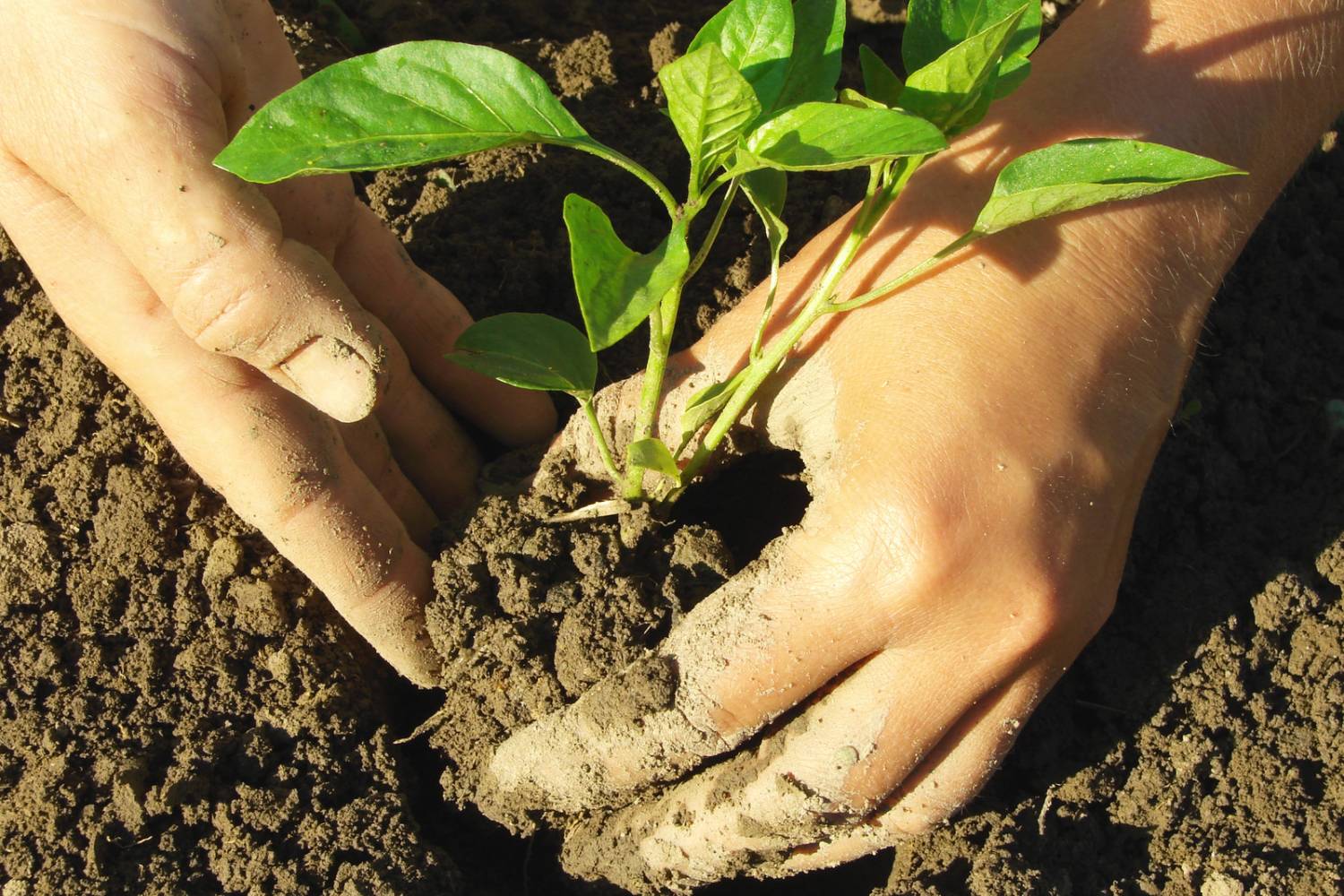Best Fertilizers for Peppers: Improve Development and Flavor with Our Leading Picks
Best Fertilizers for Peppers: Improve Development and Flavor with Our Leading Picks
Blog Article
Organic Vs. Synthetic Fertilizers: Which Is Best for Supporting Healthy And Balanced Pepper Plants?
In the realm of nurturing healthy and balanced pepper plants, the selection in between organic and artificial fertilizers stands as a critical decision with far-reaching implications. While both alternatives aim to provide important nutrients to support plant development, the nuances of their effect on the dirt, plant wellness, and the atmosphere stimulate an argument that mirrors throughout the gardening community. Understanding the distinctive benefits and prospective risks of each plant food kind is important for pepper farmers looking for to enhance their yields while preserving a sustainable and eco-conscious approach.
Benefits of Organic Plant Foods
Organic fertilizers use a lasting and environmentally-friendly technique to beneficial pepper plants, offering necessary nutrients without the use of synthetic chemicals. These all-natural plant foods are acquired from natural sources such as garden compost, manure, bone meal, and seaweed, advertising dirt wellness and biodiversity. Unlike artificial plant foods, natural alternatives launch nutrients slowly, guaranteeing a steady and balanced supply for pepper plants to prosper.
One considerable benefit of natural fertilizers is their capacity to enhance soil structure and water retention. By improving soil health and wellness, natural fertilizers promote beneficial microbial task, which aids in nutrient uptake by pepper plants. Additionally, organic plant foods minimize the risk of chemical run-off, securing water sources from air pollution and safeguarding the environment.
Furthermore, natural plant foods add to lasting soil fertility by advertising the development of helpful dirt organisms. These organisms help break down natural issue, releasing nutrients in a type that is easily obtainable to pepper plants. best fertilizers for peppers. By fostering a healthy dirt community, natural fertilizers support sustainable pepper growing techniques that profit both plants and the atmosphere
Downsides of Synthetic Fertilizers
Artificial fertilizers, unlike their organic equivalents, position different drawbacks when utilized to nourish pepper plants, impacting both plant health and wellness and ecological sustainability. One major downside of artificial fertilizers is their tendency to seep nutrients from the soil rapidly. This rapid leaching can result in nutrient inequalities in the dirt, creating plants to struggle with shortages or toxicities. Additionally, artificial fertilizers can damage helpful dirt microorganisms, such as earthworms and valuable germs, interfering with the dirt ecosystem's equilibrium.
Moreover, the overuse of synthetic fertilizers can add to water contamination. Excess plant foods not soaked up by plants can remove right into water bodies, leading to eutrophication, where algae blooms diminish oxygen levels in the water, damaging water life. Furthermore, synthetic fertilizers are generally stemmed from non-renewable sources, such as nonrenewable fuel sources, adding to carbon exhausts and environmental deterioration throughout their production.
Nutrient Absorption Contrast
When comparing synthetic and natural plant foods in terms of nutrient absorption, natural plant foods have the advantage of offering a much more well balanced and slow-release resource of nutrients. Organic plant foods have a range of macro and trace elements that are not just beneficial for the plants yet likewise promote healthy and balanced soil microbial task, which assists in nutrient uptake.
Moreover, natural fertilizers boost soil structure and water retention capability, permitting pepper plants to access nutrients more efficiently. This enhanced dirt top quality helps with origin advancement, enabling better nutrient absorption. Artificial plant foods, although originally enhancing plant growth as a result of see it here their high nutrient focus, might impede long-term nutrient absorption by degrading soil health and wellness gradually.
Environmental Impact Factors To Consider

On the various other hand, synthetic fertilizers, although commonly even more focused and promptly offered to plants, can have destructive effects on the environment if not used appropriately (best fertilizers for peppers). Their production needs high energy inputs, bring about greenhouse gas discharges and adding to climate adjustment. Additionally, the runoff of excess artificial fertilizers can infect water sources, bring about eutrophication and hurting aquatic ecological communities.
Best Plant Food Practices for Peppers
To accomplish this, it is necessary to comply with ideal plant food methods customized to the particular needs of pepper plants. One vital method is to perform a soil test prior to applying any type of fertilizers.
One more crucial technique is to fertilize pepper plants at the correct time. Typically, peppers benefit from getting fertilizer at growing and then once again when they begin to blossom. Over-fertilizing can cause nutrition discrepancies and harm the plants, so it is vital to comply with suggested application rates.
Additionally, choosing a balanced plant food with an NPK ratio that fits pepper plants' demands is fundamental. Organic fertilizers, such as garden compost or manure, can be outstanding choices as they release nutrients slowly and boost dirt framework over time. Synthetic plant foods can provide a quick nutrient increase when needed. Inevitably, combining synthetic and organic fertilizers carefully can help support healthy and balanced pepper plants while lessening ecological impact.
Verdict

Organic plant foods use an environmentally-friendly and sustainable approach to beneficial pepper plants, supplying vital nutrients without the use of synthetic chemicals. Unlike artificial plant foods, organic alternatives release nutrients gradually, making certain a constant and balanced supply for pepper plants to flourish.
Artificial fertilizers, in comparison to their natural equivalents, position different drawbacks when utilized to nourish pepper plants, influencing both plant wellness and environmental sustainability. When comparing synthetic and organic fertilizers in terms of nutrient absorption, organic fertilizers have the advantage of offering a much more balanced and slow-release resource of nutrients.Moreover, natural fertilizers boost dirt structure and water retention ability, enabling pepper plants to accessibility nutrients a lot more successfully.
Report this page